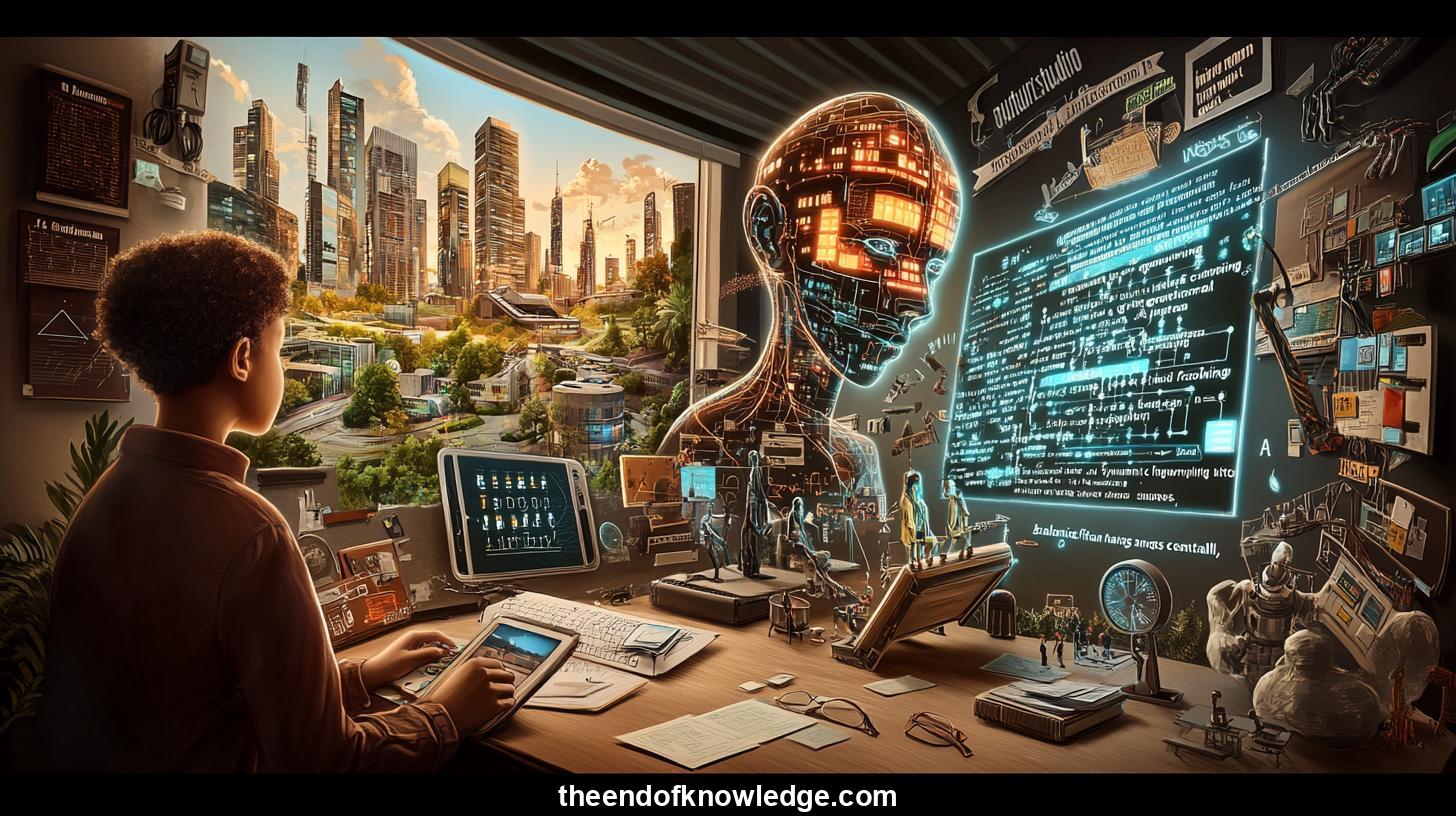 >
>
Concept Graph, Resume & KeyIdeas using DeepSeek R1 :
Resume:
30 Key Ideas:
1.- The integration of AI in programming is transforming traditional methods, enhancing productivity and efficiency.
2.- AI enables hybrid models where humans and machines collaborate, potentially revolutionizing software development.
3.- Ethical considerations, such as job displacement and the need for continuous learning, are critical in the AI-driven programming era.
4.- AI models like GPT-4 and Copilot are reshaping how programmers work, offering advanced code generation and error detection.
5.- The future of programming may involve more abstract thinking and less emphasis on traditional coding skills.
6.- AI could democratize access to programming, making it more accessible to a broader audience.
7.- The importance of human oversight and ethical considerations in AI systems cannot be overlooked.
8.- AI tools are increasingly being used for tasks like code review and project management, beyond just coding.
9.- The evolution of programming with AI raises questions about the nature of work and the role of humans in technology.
10.- Continuous learning and adaptation will be essential for programmers to remain relevant in an AI-driven world.
11.- AI has the potential to solve complex problems that are currently challenging for humans, enhancing innovation.
12.- The collaboration between humans and AI could lead to new programming paradigms and methodologies.
13.- Ethical concerns include data privacy, algorithmic bias, and the potential for job displacement.
14.- AI is enabling the development of more sophisticated and autonomous systems, changing the landscape of software engineering.
15.- The future of programming may involve more focus on high-level problem-solving rather than low-level coding tasks.
16.- AI tools are becoming integral to the programming process, from design to deployment.
17.- highlights the need for a balanced approach that leverages AI's strengths while preserving human creativity and oversight.
18.- AI is driving a shift towards more declarative programming, where the focus is on specifying what needs to be done rather than how.
19.- The integration of AI in programming education is becoming increasingly important to prepare future developers.
20.- concludes that while AI presents significant opportunities, it also poses challenges that must be carefully managed.
21.- The role of programmers may evolve into more strategic and creative roles as AI handles routine tasks.
22.- AI has the potential to enhance the quality and reliability of software by automating testing and debugging.
23.- discusses the importance of understanding the limitations of AI in programming to avoid over-reliance.
24.- Collaboration between humans and AI can lead to more efficient and innovative solutions in software development.
25.- The ethical implications of AI in programming require ongoing dialogue and regulation to ensure responsible use.
26.- AI is enabling new programming languages and frameworks that are more intuitive and user-friendly.
27.- The future of programming may involve a greater emphasis on interdisciplinary skills, combining technical knowledge with creativity.
28.- AI tools are facilitating the development of more personalized and adaptive software solutions.
29.- underscores the need for programmers to adapt to new tools and methodologies in the AI era.
30.- The integration of AI in programming has the potential to drive significant advancements in technology and society.
Interviews by Plácido Doménech Espí & Guests - Knowledge Vault built byDavid Vivancos 2025